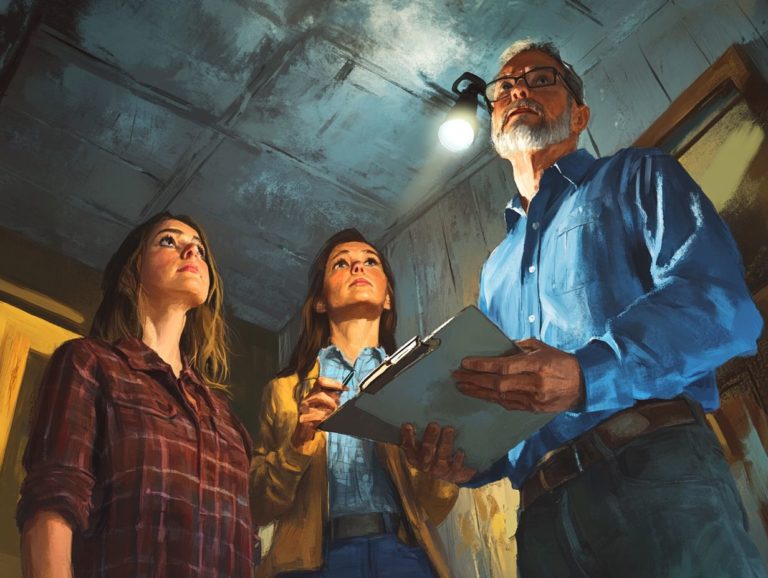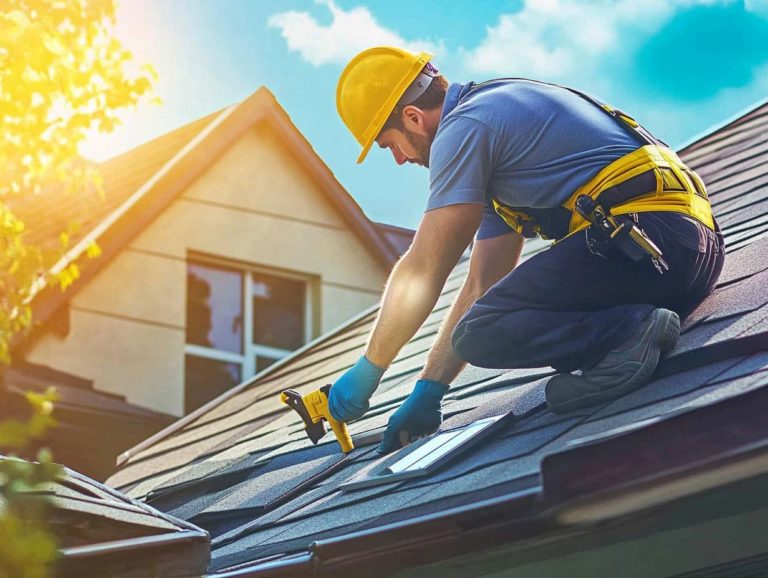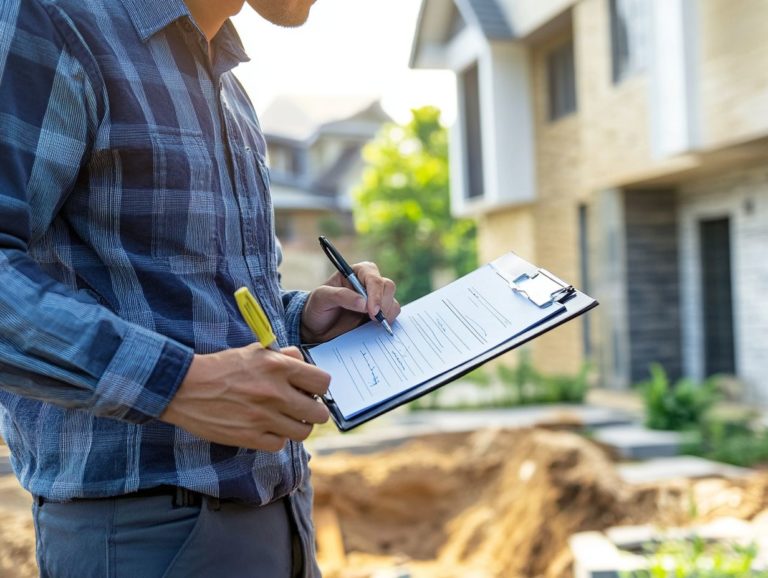The Importance of Electrical Inspections in Homes
Electrical inspections are your best defense against dangerous hazards in your home. They are essential for ensuring the safety and efficiency of your electrical system.
By understanding what these inspections involve, you can avoid potentially hazardous situations.
This guide will walk you through the inspection process. You’ll learn when to conduct these assessments, common issues that may arise, and the benefits of regular evaluations.
By the end, you’ll see how proactive electrical inspections not only enhance your home s safety but also save you money in the long run.
Contents
- Key Takeaways:
- Understanding Electrical Inspections
- When to Conduct Electrical Inspections
- The Inspection Process
- Potential Issues Found During Inspections
- The Benefits of Regular Electrical Inspections
- Frequently Asked Questions
- What is the importance of electrical inspections in homes?
- How often should homes undergo electrical inspections?
- Who should perform electrical inspections in homes?
- What can I expect during an electrical inspection?
- What are the consequences of not getting regular electrical inspections for my home?
- Are there any benefits to getting regular electrical inspections for my home?
Key Takeaways:
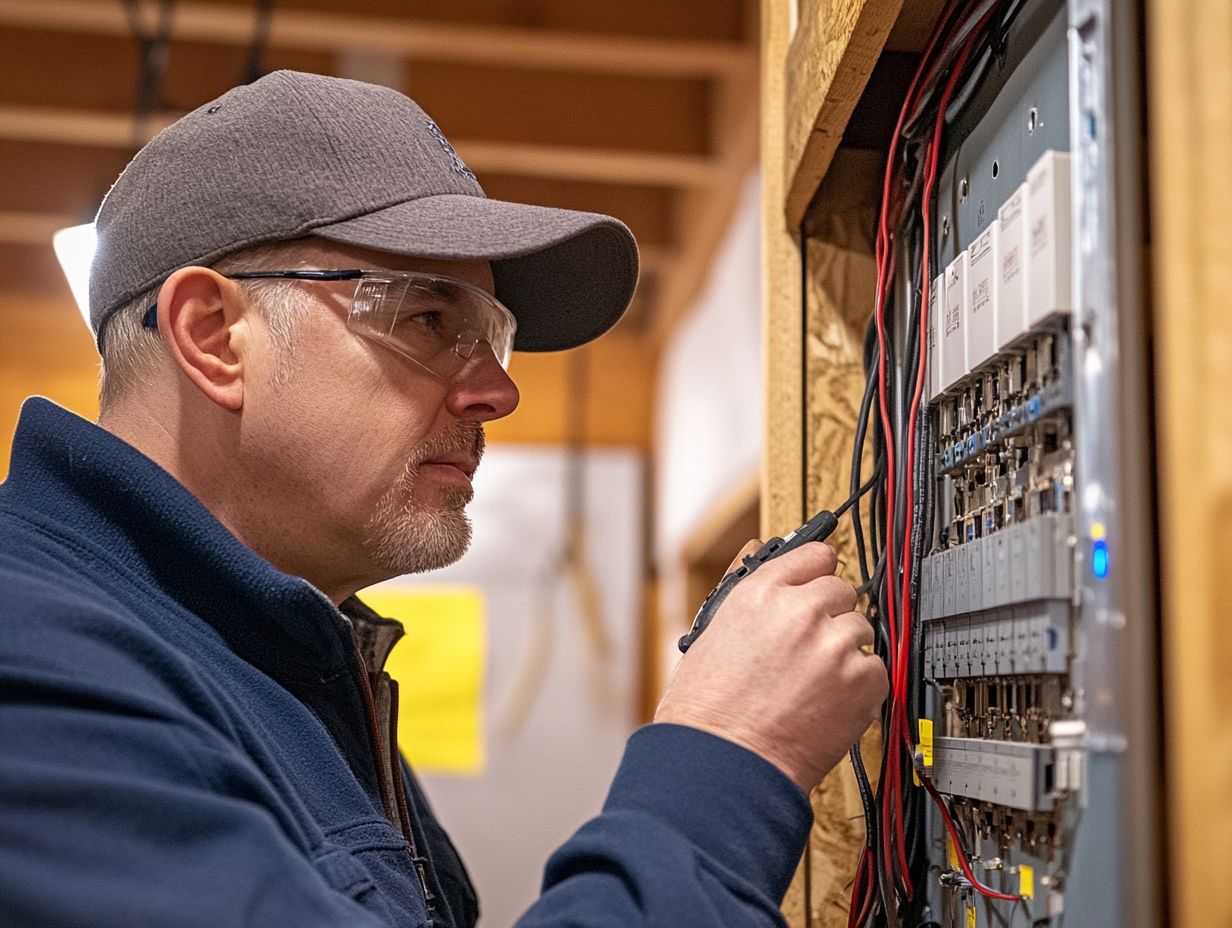
Regular electrical inspections are crucial for your home’s safety and efficiency. Conduct them at least once every five years or as needed when you notice warning signs like flickering lights or tripping breakers.
These inspections check areas such as wiring, outlets, and appliances for potential hazards that could lead to costly repairs.
Understanding Electrical Inspections
Electrical inspections are vital for keeping your home safe. In Texas, following local electrical safety standards is essential to protect your home from hazards, and understanding the importance of thorough home inspections can further enhance your safety measures.
These inspections are thorough evaluations carried out by trained electricians. They ensure that your home complies with safety standards and identify problems like faulty wiring, highlighting the importance of pre-purchase home inspections.
What are Electrical Inspections?
Electrical inspections are detailed assessments performed by licensed electricians. They evaluate the safety of your property’s electrical systems, examining components like circuit breakers and wiring.
These experts have the qualifications to spot potential hazards. They conduct tests to determine how well your systems are performing, looking for wear and compliance with safety standards.
By prioritizing these inspections, including window inspections in homes, you can greatly reduce the risk of electrical failures and boost your home’s overall safety.
Why are They Important?
Electrical inspections play a crucial role in ensuring your safety. They help minimize electrical hazards, directly affecting your home’s safety and value, highlighting the importance of inspections for home safety.
These assessments protect you from risks like outdated wiring that can increase fire hazards. Identifying issues early on also allows you to optimize your electrical system, enhancing energy efficiency.
Regular inspections maintain your property’s value, making it more attractive to potential buyers. Prompt repairs from these inspections create a safe living environment and give you peace of mind.
When to Conduct Electrical Inspections
Knowing the right time for electrical inspections is crucial for safety. It helps ensure your systems remain compliant with local regulations.
Prioritizing these inspections protects your assets and gives you peace of mind about your electrical systems.
Recommended Frequency
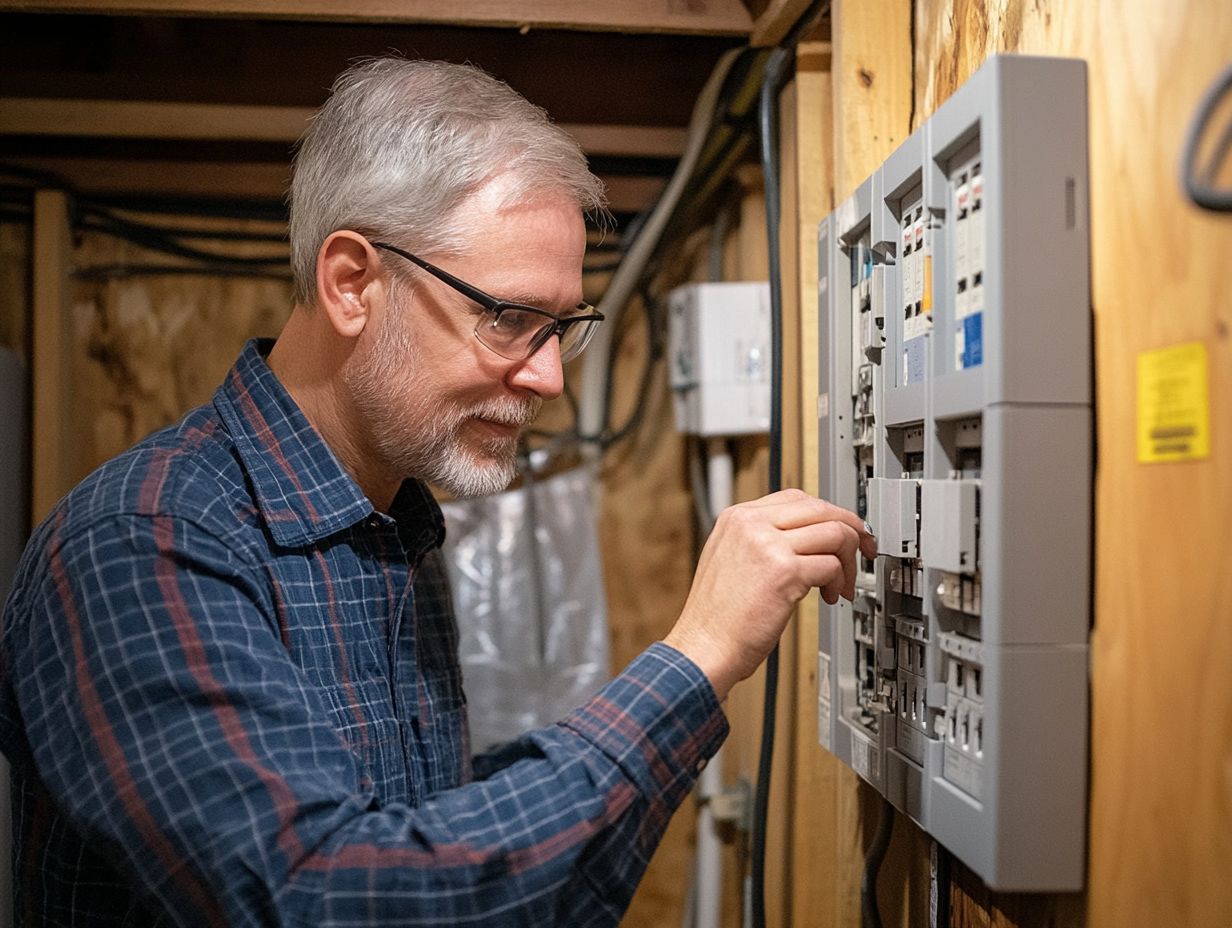
You must conduct electrical inspections at least once every few years to ensure your safety! However, this guideline can vary significantly based on the age and condition of your property.
For new constructions, which typically meet the latest safety standards, occasional checks are still advisable to monitor electrical performance, especially as the house settles.
On the other hand, if you reside in an older home, you may need to schedule inspections more regularly often every one to two years to address potential deterioration of wiring.
By adopting a proactive approach to electrical maintenance, you can effectively prevent hazards and ensure that your systems operate at peak efficiency.
Signs That an Inspection is Needed
Recognizing the signs that your home needs an electrical inspection is essential for preventing serious issues and ensuring safety. For more insights, you can learn about the importance of home inspections in real estate to stay compliant with electrical standards.
There are several key indicators you should keep an eye on that might suggest underlying electrical problems. For example, flickering lights could signal faulty wiring or an overloaded circuit.
If you find your circuit breakers tripping frequently, that s a red flag indicating your electrical system may be struggling to meet current demands. Outdated wiring, especially in older homes, can pose safety hazards and lead to inefficiencies, making it crucial to assess the condition of your electrical system.
By identifying these warning signs early, you can tackle energy efficiency and safety concerns before they spiral into more significant issues.
The Inspection Process
The inspection process for electrical systems requires a meticulous evaluation carried out by a licensed electrician. This assessment focuses on key elements, including wiring systems, electrical panels, and adherence to safety standards.
By engaging in this thorough review, you ensure that your electrical infrastructure meets the highest safety and performance criteria.
What to Expect During an Inspection
During an electrical inspection, expect a thorough evaluation of your electrical systems conducted by a licensed electrician who will ensure everything complies with local electrical codes.
This meticulous process involves a detailed examination of key electrical components, such as circuit breakers, to confirm they are operating correctly and safely.
The inspector will scrutinize electrical performance, on the lookout for signs of wear or potential hazards, including loose connections or overheating.
Safety is paramount in this evaluation; the electrician will also check that all systems are properly grounded and that protective devices, like surge protectors, are installed.
Ultimately, this thorough inspection protects your home and everyone in it from electrical hazards.
Common Areas Checked
Electrical inspections typically shine a light on several key areas, such as electrical panels and wiring systems. These components are essential for the safe operation of any electrical system and help you identify potential risks.
Circuit breakers are crucial devices that prevent electrical overloads and short circuits. A malfunctioning breaker could mean the difference between a harmless power outage and a catastrophic fire.
Similarly, faulty wiring often goes unnoticed, yet it can pose significant hazards, including shock risks and electrical fires. Regular electrical maintenance not only ensures you comply with local safety standards but also promotes the longevity of your electrical installations, ultimately safeguarding both your property and its occupants.
Potential Issues Found During Inspections
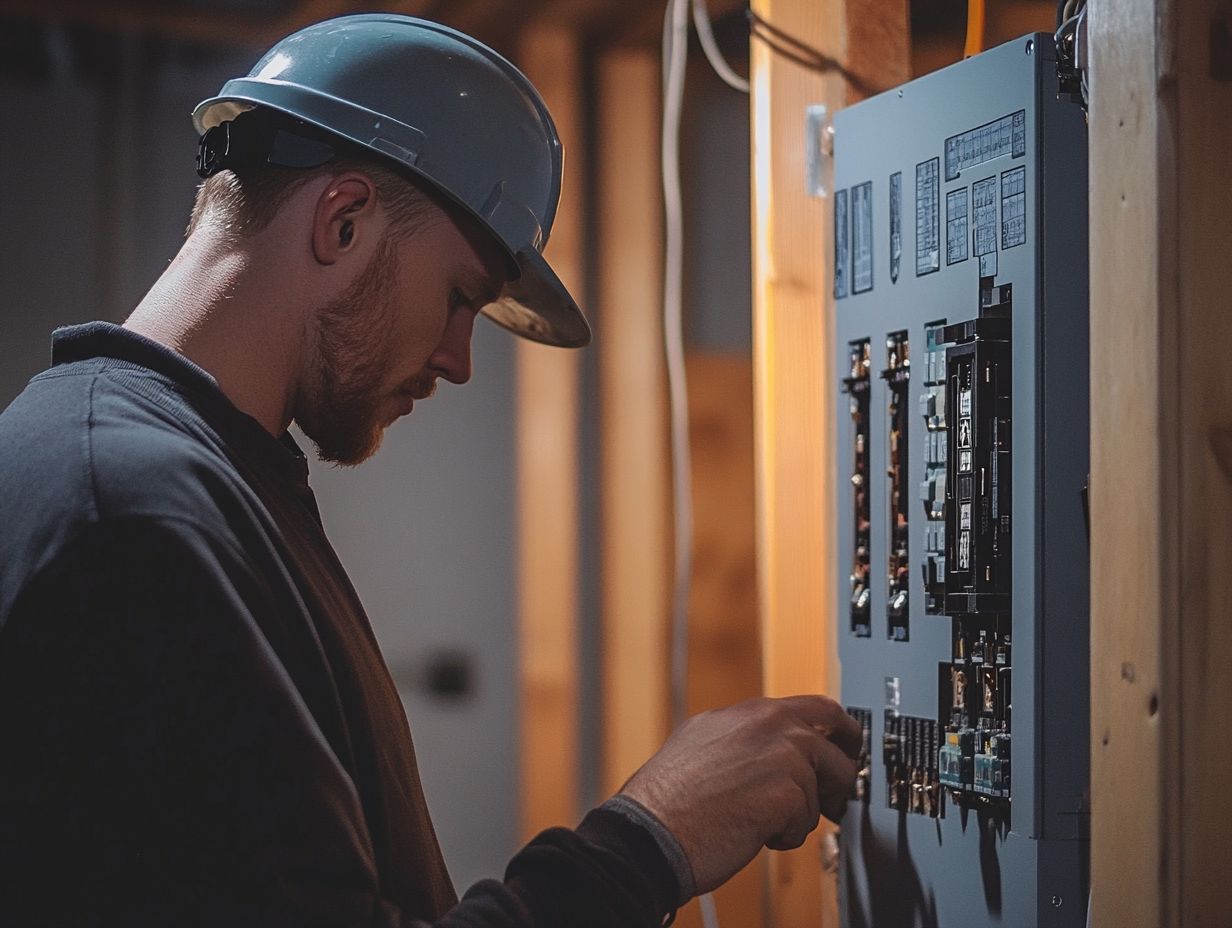
During electrical inspections, you may encounter a range of potential issues and electrical problems, ranging from minor discrepancies to serious hazards that could jeopardize safety.
It’s essential to remain vigilant, as identifying these concerns can make all the difference in ensuring a secure environment.
If you notice any signs of trouble, do not hesitate to seek help. Your electrical safety is critical!
Common Electrical Problems
During inspections, you might encounter common electrical issues like faulty wiring, malfunctioning circuit breakers, and not following electrical safety rules. These challenges can arise from various factors, including the age of the system, wear and tear on equipment, or improper installation techniques.
Faulty wiring is especially alarming. It can lead to short circuits and significantly increase the risk of electrical fires. Malfunctioning circuit breakers can fail to shut down electrical devices safely during overloads, posing a serious threat to both your appliances and the safety of everyone in the home.
Failing to comply with current electrical codes increases liability and exposes your home to fire hazards that can wreak havoc on property and lives. By addressing these issues promptly through thorough inspections, you can mitigate risks and ensure a safe living environment.
How to Address These Issues
Addressing electrical issues that arise during inspections often requires enlisting the expertise of a licensed electrician. This ensures effective repairs and following safety rules.
Seeking professional guidance helps resolve current problems and prepares you for important electrical upgrades that enhance both energy efficiency and overall safety. Regular maintenance keeps your home safe and your mind at ease.
Implementing routine electrical safety inspections helps identify minor flaws before they develop into significant issues. By prioritizing these strategies, you can enjoy a safer living environment while optimizing your energy consumption.
Investing in energy-efficient solutions can significantly lower your electricity bills, leading to long-term savings and a more sustainable home.
The Benefits of Regular Electrical Inspections
Regular electrical inspections present a host of advantages for you, including heightened electrical safety, improved energy efficiency, and an increase in your home’s value, making it crucial to understand the importance of a thorough home inspection.
These inspections become an essential part of responsible home ownership, ensuring that your living space remains both safe and efficient.
Improving Safety and Efficiency
One of the primary benefits of regular electrical inspections is the significant boost in both safety and energy efficiency within your home. This proactive approach enables you to identify potential hazards, such as faulty wiring, before they escalate into serious issues. For new homeowners, understanding the importance of home inspections can ultimately protect both you and your property.
By prioritizing electrical maintenance, you ensure that your systems operate at peak efficiency while enhancing compliance with local safety regulations. Regular inspections present valuable opportunities to detect wear and tear before it spirals into an emergency, fostering a secure living environment.
These benefits clearly highlight the importance of regular inspections. Embracing these preventive measures becomes an essential aspect of responsible homeownership, providing you with peace of mind and promoting safer energy consumption.
Cost Savings in the Long Run
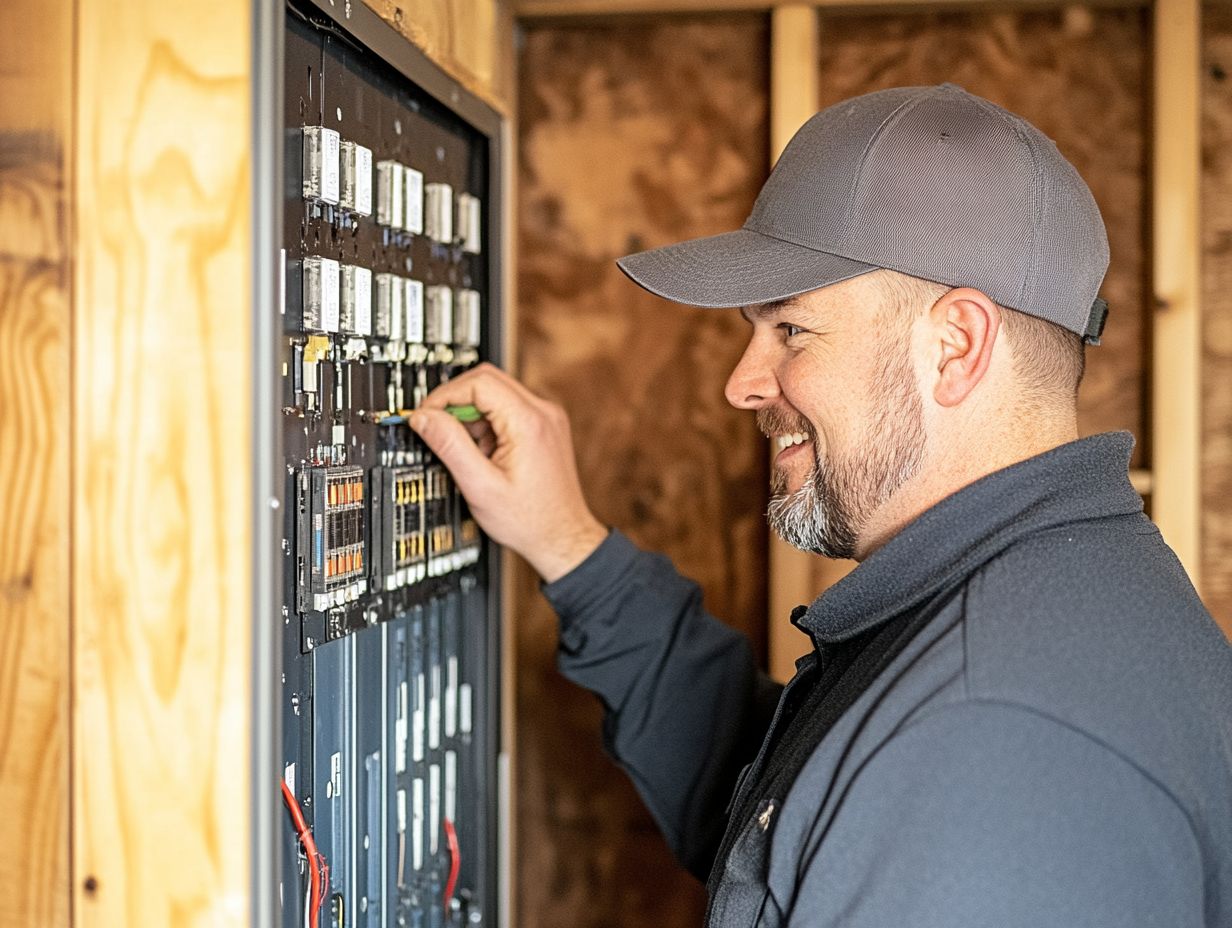
Investing in regular electrical inspections can yield significant cost savings over time by preventing expensive electrical issues and enhancing energy efficiency.
This proactive approach not only highlights potential risks but also enables timely upgrades that can lead to considerable reductions in energy costs.
Homeowners like you who prioritize these inspections often find themselves pleasantly surprised by the financial benefits. Minor issues identified early can save you from facing major repairs later.
By optimizing your electrical system, you’ll enjoy lower utility bills, amplifying your savings even further.
Staying ahead of potential risks through consistent inspections isn’t merely about safety; it’s a savvy financial strategy that protects your home’s value while promoting sustainable living.
Frequently Asked Questions
What is the importance of electrical inspections in homes?
Electrical inspections are crucial for ensuring the safety and functionality of the electrical systems in homes. They help identify potential hazards and ensure that the systems are up to code, highlighting the importance of home inspections in maintaining a safe living environment.
How often should homes undergo electrical inspections?
It is recommended to have electrical inspections done at least once every 10 years. However, if your home is older or if you have experienced electrical issues, more frequent inspections may be necessary.
Ready to ensure your home s safety? Contact a licensed electrician today!
Who should perform electrical inspections in homes?
A licensed and experienced electrician should perform electrical inspections. They have the right skills to identify potential electrical issues.
What can I expect during an electrical inspection?
Your electrician will check all outlets, wiring, and electrical panels. They ensure everything works properly and meets safety standards.
What are the consequences of not getting regular electrical inspections for my home?
Skipping regular inspections can create serious safety hazards, like electrical fires or electrocution. These problems can also lead to costly repairs if not caught early.
Are there any benefits to getting regular electrical inspections for my home?
Yes! Regular inspections can prevent major electrical issues. They ensure your home is safe and provide peace of mind, especially when considering the importance of home inspections before buying, knowing everything is up to code.


